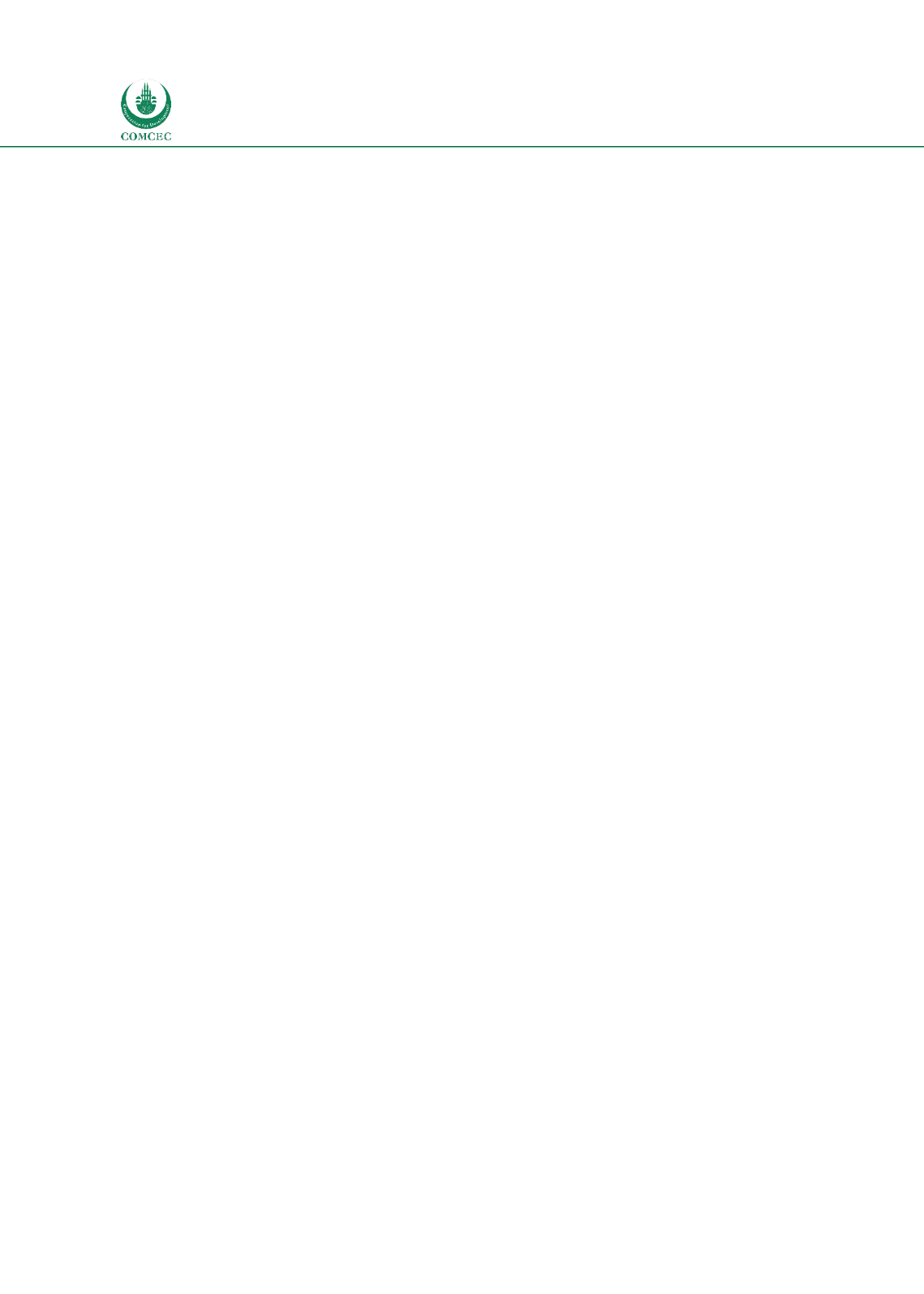

National and Global Islamic Financial Architecture:
Problems and Possible Solutions for the OIC Member Countries
58
highlights procedures for the winding-up of companies during insolvencies, and the Banking
Companies Act 1991 also elaborates on dissolution and insolvency issues. Under the
Bankruptcy Act (Chapter 1, Section 37), ‘bank-debt’ is identified as a loan given or a financing
benefit in respect of which a claim may be made by a bank company as defined in the Banking
Companies Act 1991 or by a financial institution as defined in the Financial Institutions Act
1993. The provisions of the Bankruptcy Act 1997 and the Companies Act 1984 apply equally
for both conventional as well as Islamic banks. Thus, there are no specific insolvency laws
dealing with issues for Islamic banks and takaful companies.
4.1.3. Financial System Regulation and Supervision Framework
Different segments of the financial sector are regulated by different entities. Bangladesh Bank
(BB) (the central bank of the country) is responsible for regulating banks and non-bank
financial institutions, Bangladesh Securities and Exchange Commission (BSEC) regulates the
capital markets, the Insurance Development and Regulatory Authority (IDRA) is the regulator
of the insurance sector, and the Micro-credit Regulatory Authority (MRA) acts as the regulator
of microfinance institutions. The regulatory and supervisory arrangements for these entities
are well defined with strong legal underpinnings. A coordination council, to enhance financial
stability through improved coordination between regulators comprising Bangladesh Bank, the
Bangladesh Security Exchange Commission (BSEC), the Insurance Development & Regulatory
Authority (IDRA), the Registrar of Joint Stock Companies (RJSC), and the Microcredit
Regulatory Authority (MRA) was established under a MOU signed among them in 2012.
The Bangladesh Bank Order (BBO) 1972 with all amendments up to 2003 defines the main
functions of Bangladesh Bank (BB) which includes regulation and supervision of banking
companies and financial institutions (GOB 1972). There is no specific provision or indication
for BB to perform duties or take initiatives that promote the Islamic financial system or
regulate and supervise Islamic financial institutions. Considering the growth and its share in
the country’s financial sector, BB should take various steps to facilitate Islamic banking.
Bangladesh Bank issued the ‘
Guidelines for Islamic Banking
’ in 2009 to provide a regulatory and
supervisory framework for Islamic banks in the country. However, BB has not yet established
the Islamic Banking Department to deal with different issues relating to Islamic finance.
BB issued a circular on 'Identifying Risk Factors Relating to Islamic Mode of Investment under
Risk Based Capital Adequacy for Banks' on July 20, 2009 (BB 2009). The circular provides
guidelines for management of the Capital Adequacy Framework for Islamic Banks by detailing,
among other things, the capital charges for different types (credit, market and operational) of
risks. It covers various risks arising in different modes of financing such as murabahah, ijarah,
salam, etc. and highlights pertinent issues regarding the capital adequacy of Islamic banks.
BB has recently issued a guideline named 'Onsite Supervision Guidelines December, 2015' that
also applies to Islamic banks (BB 2015c). Chapter 21 of the Guidelines deals with the
supervision of Shariah based banks and conventional banks having Islamic banking
branches/windows. It briefly discusses the norms and rules of supervision by recognizing the
specific features of Islamic modes of finances. At the time of inspection of Islamic banks and
windows of conventional banks/FIs relevant issues arising from Shariah compliance are also
considered besides the general operational issues arising in conventional banks/FIs.
Bangladesh Bank became member of the Islamic Financial Services Board (IFSB) in 2002.
While it is a member of the IFSB, as Bangladesh Bank regularly joins in on different meetings
and its officers have work as members of guideline preparation committees, it has not taken
















